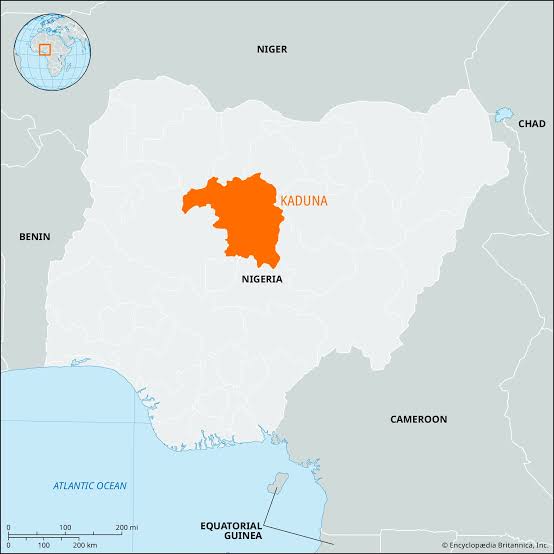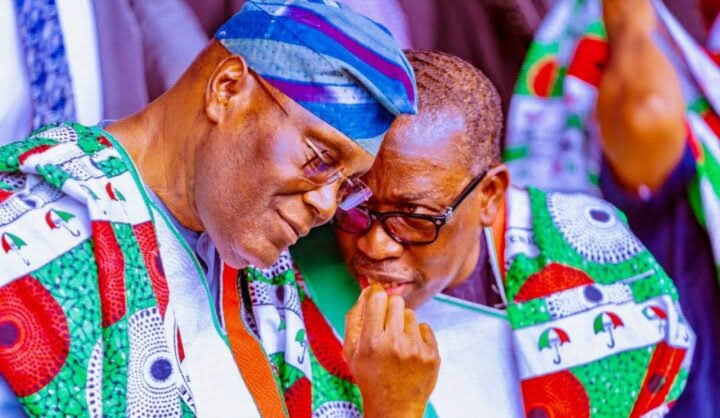Isaac Samuel
A silent political pilgrimage is underway. One that leads not to Mecca or Jerusalem but to Kaduna, the quiet compound of former President Muhammadu Buhari.
There, behind closed doors and away from the blinding lights of Abuja’s Aso Rock, the 2027 political calculations are slowly taking shape.
In a span of just a few days, Kaduna has hosted a steady stream of political heavyweights—former Vice President Atiku Abubakar, ex-Governor Nasir el-Rufai, former Governor Aminu Tambuwal, and a swift response team from the ruling All Progressives Congress (APC) led by its national chairman, Abdullahi Ganduje.
Prior to Friday’s visit, Governor Hope Uzodinma of Imo State, who chairs the APC governors forum led his colleagues to hold a closed door meeting with the retired general.
The visits, though draped in the fabric of Sallah felicitations, bear the unmistakable weight of political theatre as Nigeria prepares for the 2027 general elections.
The visits have also morphed into something far more calculated which is a strategic pilgrimage by political actors seeking validation, alliance, and relevance.
Among those who accompanied Atiku on the visit were el-Rufai; Aminu Tambuwal, former governor of Sokoto; Isa Pantami, former minister of communications; Achike Udenwa, former governor of Imo; Gabriel Suswam, former governor of Benue; and Jibrilla Bindow, former governor of Adamawa.
In a post on his X handle, Atiku described the visit to Buhari as a ‘wonderful time’ with the former President.
He said: “As the Waziri Adamawa, I was obligated to be in Adamawa during the Sallah celebrations. I held forth for the Lamido Fombina in some of the activities of the Sallah celebrations.
“Today, I had the opportunity to pay a post-Sallah visit to His Excellency Muhammadu Buhari, former President of the Federal Republic of Nigeria, 2015- 2023. It was a wonderful time with him. As usual, he cracked me up (to the extent that my ribs were hurting with his peculiar humour
Also in a post on X, el-Rufai, who recently defected to the Social Democratic Party (SDP) from the All Progressives Congress (APC), said the visitation was for “unity and brotherhood”.
For Atiku, who has been a serial contender for the position of President, the “future” is not some abstract ideal, it is the 2027 presidential race.
The APC leadership, clearly rattled by Atiku’s visit, followed up with their own trip. Their mission was clear. To reclaim Buhari’s symbolic loyalty, reiterate the party’s commitment to his legacy, and perhaps forestall any further defection of his inner circle from the APC.
There are concerns over the potential exit of the CPC bloc, once the crucible that birthed the APC following the merger of several opposition forces in 2013.
Several former ministers who served in Buhari’s cabinet are also reportedly finalising plans to join the SDP, and in Buhari’s home state of Katsina, numerous APC members have already defected to the SDP.
It was gathered that the APC feared Buhari’s enduring cult-like followership in the North could become a major liability for APC if he backs his CPC associates. His bloc vote, they feared, could be catastrophic for the party in 2027.
The potential defections of key figures like Chukwuemeka Nwajiuba, Abubakar Malami, and others could further weaken APC, especially if they defect to another party.
National chairman of the APC, Abdullahi Ganduje, flanked by governors and ministers loyal to President Bola Tinubu, after meeting the former president dismissed speculation over a potential opposition alliance ahead of the 2027 general elections, calling it a “joint venture” bound to fail.
Asked about the recent wave of consultations among key opposition leadersmost notably Atiku, Ganduje expressed confidence in the ruling party’s dominance.
“We are not worried at all. This is just history trying to repeat itself. They went on a joint venture, which will not work because from what we have seen, there are just some particles that cannot come together. It is a game, and we will not reveal our technicalities on how to handle it, but we assure you, we are equal to the task.”
Ganduje boasted of the APC’s control of 21 states and described it as “still the strongest party in West Africa.” He added that the party is focused not only on maintaining power but also on expanding its reach before the next elections.
But, why are Nigeria’s most influential politicians across party lines flocking to Buhari’s residence in Kaduna?
Buhari, a retired general who first ruled Nigeria from 1983-85 before coming back as a civilian president in 2015 has an enduring political relevance rooted in a formidable grassroots following that dates back to his earliest presidential bids.
In 2011, contesting under the now-defunct Congress for Progressive Change (CPC), Buhari secured over 12 million votes, a staggering figure for a candidate with minimal nationwide party structure but still lost to the then incumbent President Goodluck Jonathan.
That performance, however, sent a clear message: Buhari was no ordinary candidate. His cult-like support base across the North, particularly in the North-West and North-East, marked him as the only politician capable of commanding mass votes in those regions without the usual financial inducements or elite endorsements.
It was this consistent electoral strength that made Buhari the natural choice when opposition forces merged in 2013 to form the APC. Political heavyweights, including then-Lagos State power broker and current President Bola Ahmed Tinubu, threw their weight behind Buhari’s candidacy perhaps recognising that only he could galvanize northern votes and create a true nationwide alliance. In that historic party primaries held in Lagos ahead of the 2015 presidential election, Buhari defeated polled 3,430 votes to get the ticket.
His votes outnumbered those of Kano State governor, Dr Rabiu Kwankwanso and former Vice President Atiku Abubakar who got 974 and 954 votes respectively.
After clinching the party’s ticket to confront Jonathan, the result was historic. Buhari defeated the incumbent Jonathan in 2015, becoming the first opposition candidate to unseat a sitting Nigerian president through the ballot box. .
Four years later, in 2019, he repeated the feat by defeating former Vice President Atiku Abubakar, again raking in millions of votes from his northern strongholds.
Perhaps, it is his ability to deliver bloc votes in the northern region which remains unmatched that has made him a key force in the political calculus of 2027.
It was in this regard that Borno South Senator, Ali Ndume, in an interview yesterday on a national television said President Bola Ahmed Tinubu should be worried if his predecessor, Muhammadu Buhari, is not on his side.
The lawmaker, while describing Buhari’s followership, particularly in the North, as occultic, said although the former president has just one vote, he remains an adorable figure.
He said: “Buhari’s followership has diminished naturally because it is different when you are not in power and after spending like eight years in power. Of course, his popularity has diminished, it is natural, but you can’t write him off, especially with the Northern masses. The followership of Buhari has been occultic. You cannot explain it.
“If Buhari is coming here now, you will see people rushing to see him. Everybody, including those in the vegetable market, will rush here. Buhari is still with the Talakawas.
“Tinubu should be worried if Buhari is not on his side. Every number counts, and Buhari has one vote. Tinubu should also be worried about my position. Because I have one vote for him. He does not have a vote for me.
But despite the speculations, Buhari has affirmed that he would never abandon the APC. Through his media aide, Garba Shehu, the former president said he would never turn his back on the party that offered him its presidential ticket twice.
“I am an APC member and I like to be addressed as such. I will try to popularise the party by all means,” he said
Indeed, the APC, battling internal fractures and fears of a CPC bloc revolt, appears desperate to keep Buhari within its fold.
With the recent pilgrimage to Kaduna, the road to 2027 may not start with campaign posters or manifestos but with a handshake in Buhari’s parlour.
His political capital, though unspoken, is being courted with the urgency of a kingmaker. And in this season of quiet consultations, one thing is clear. Buhari may have stepped aside, but he has not stepped away.





